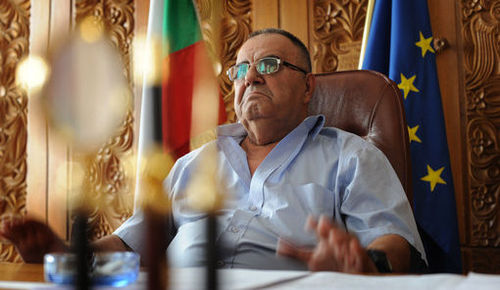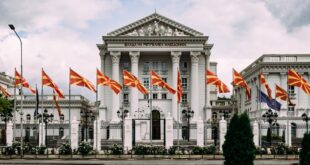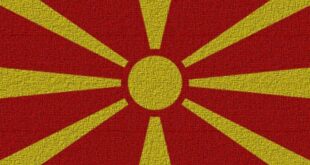 In an interview with bTV television on August 10, Bulgaria’s Minister without portfolio, responsible for Bulgarians abroad, Bozhidar Dimitrov responded to the Spaska Mitrova case in Macedonia.
In an interview with bTV television on August 10, Bulgaria’s Minister without portfolio, responsible for Bulgarians abroad, Bozhidar Dimitrov responded to the Spaska Mitrova case in Macedonia.
As reported earlier by The Sofia Echo, Mitrova is a Bulgarian national who has allegedly been sentenced to three months in jail for not allowing her ex-husband to visit their daughter, failing to observe a ruling of relevant judicial and social institutions.
The Bulgarian interpretation is, however, that she has been sentenced because she self-identified as a Bulgarian.
The following is an edited transcription of the interview Dimitrov gave for bTV.
Bozhidar Dimitrov: “Unfortunately, the possibilities we have as a government are limited. We can act only according to international laws. Our Foreign Ministry has requested documentation on the matter and the views of the Macedonian government. We expect to obtain those within several days. This terrible event for me is a humanitarian matter before all else, and only after that a legal matter. Humanitarian, because this is not done anywhere in the world. A mother, who is nursing her child, and who has not secured a bed for her husband when he comes to see their the daughter, is arrested by 20 police officers. Twenty heavily armed police, this many are not even sent when a narcotics boss is arrested in Harlem or the Bronx. Or even here, when we arrest a local dealer.”
“Macedonia has made this into a political case. The Macedonian president could end this at any time by pardoning the mother, as many organisations have appealed him to do. Or at least to halt the execution of the verdict until the end of breast-feeding,” Dimitrov said.
According to Dimitrov, the woman “has been sick, as well as the child. Which makes this humanitarian case even worse.” Dimitrov said the mother suffered from cancer in both breasts and the child had asthma.
According to Dimitrov, the child was currently with the father, something which he said was “unacceptable”.
“All this is only one of many similar cases, many of which have not become known to the public. Macedonia is a country which, as Macedonian politician Arben Dzaferi said, suffers from an identity crisis. The nation and the state were built after 1944 on the basis of the Bulgarian population inhabiting this area. Macedonia had a unique law, called the Macedonian National Honor Law. To be Bulgarian, to self-identify as Bulgarian was considered a felony and punishable by three to five years in prison,” Dimitrov said.
“This is not the case anymore, but obviously in order to protect the nationality created after the 1944, the law was repealed. As I said, Bulgarians and those who self-identify as Bulgarians, are pursued in all possible ways, even for petty crime,” Dimitrov said.
“I know a case of twisted bumpers, two cars collided in an accident, no one was killed or wounded. The man involved was sentenced to and served six months in jail,” Dimitrov said.
“I would call this repression and an attempt to stop a process that occurs spontaneously, without any interference from the Bulgarian side, known as Re-Bulgariasation. The term is not mine, but from former Macedonian president Kiro Gligorov,” Dimitrov said.
“It is good that the current strong team at the ministry said it could reconsider Bulgaria’s attitude towards Macedonia’s acceptance into the European Union and Nato,” Dimitrov said.
“Generally, among Bulgarian politicians there is the sense that our policy of full support to Macedonia for its membership should be revised, or at least used to exert pressure on Macedonia to change something. You see, this is a problem, but it is not our problem, it is theirs. Macedonia attempts to transfer its internal problems, its identity crises, to Bulgaria, Greece and Albania. Of course, we cannot accept that. They have to explain to their citizens why they have it so bad. They are in a very bad state, unemployment there is around 40 per cent, with next to no foreign investments and there is a need to explain why this is,” Dimitrov said.
Macedonian television AL1 quoted media analysts as saying that the Bulgarian reaction in the Mitrova case was proof of a new policy, which became obvious with the appointment of “anti-Macedonian” Bozhidar Dimitrov.
“I do not determine the policy of the Bulgarian Foreign Ministry. The ministry has very capable specialists in this field,” Dimitrov said.
Asked what would be the Bulgarian policy towards Macedonia from here on, Dimitrov said “I do not deal with policy concerning Bulgarians abroad. I deal with cultural and educational issues, issues regarding Bulgarian churches and schools and the Bulgarian media, among others.”
If asked for help, however, Dimitrov said, he would “co-ordinate and inform official institutions.”
Asked if he expected the issue to drag on, Dimitrov said “I am afraid that, in order to preserve prestige, the Macedonian government will do precisely that. They will drag this on for three months and reject all our proposals, just to show how well they protect the Macedonian national identity.”
 Eurasia Press & News
Eurasia Press & News



